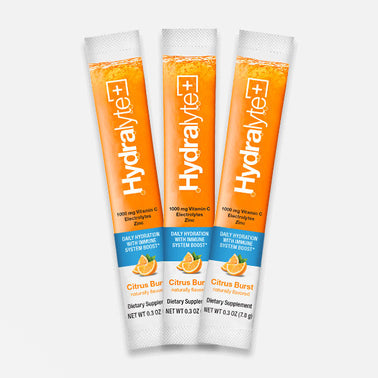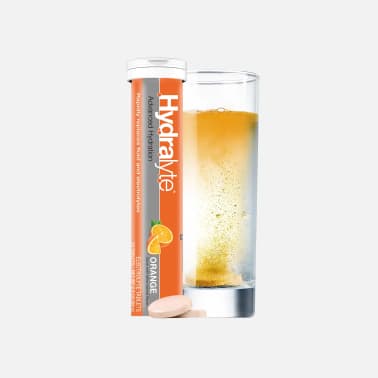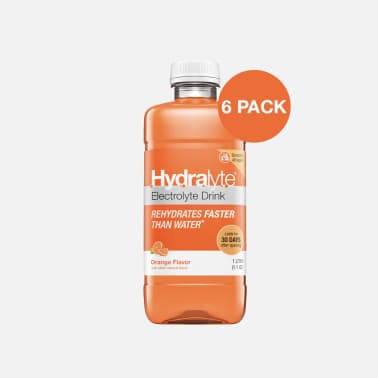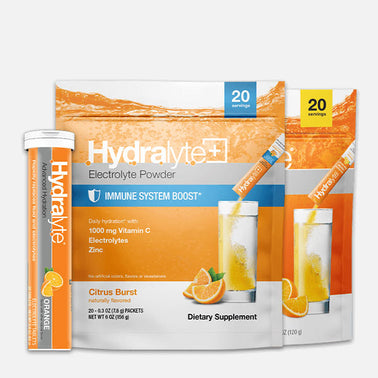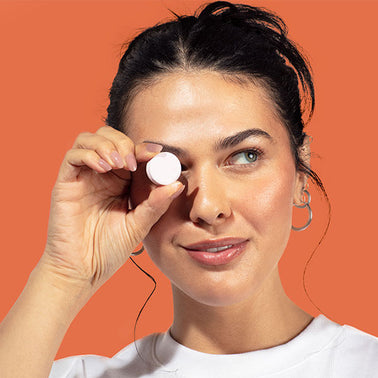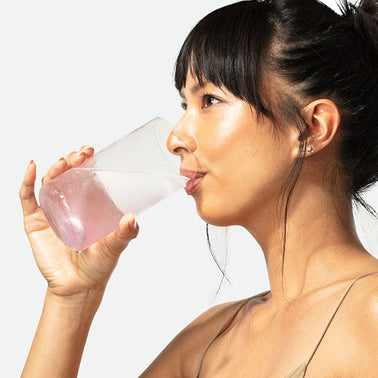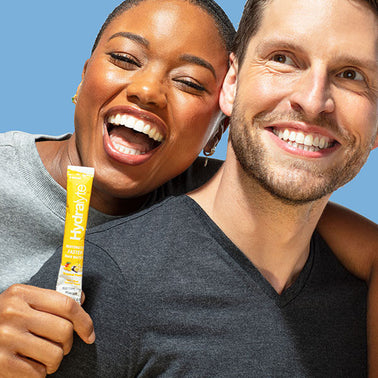Summer is one of the most popular seasons due to hot days, long nights, and a chance to relax outside. Many people travel over the summer months, take up exercising or other outdoor activities, and are sure to get their vitamin D from spending hours in the sun. While summer is great for a number of reasons, it’s important to stay hydrated in order to enjoy your summer experience to the fullest. Increased heat exposure during the summer, or extended time spent outdoors or in the sun, can threaten your hydration status. Know the signs and symptoms of dehydration, as well as proper hydration tips, so you can continue to fully enjoy your summer.
What Causes Dehydration in the Summer
Usually when people think of causes of dehydration during summer months, they imagine someone running or exercising in the full sun. This type of activity will certainly increase your sweat rate, but there are many causes of dehydration other than high-intensity exercise in the sun. Heat exposure is enough to cause dehydration, even without the sun.
For example, if you are hiking in a well-shaded area you may not be worried about a sunburn, but you should still be careful and hydrate properly. Heat and high humidity both can cause your body to sweat, and any time you sweat, you are losing water and electrolytes. Any summer activity can additionally include sun exposure, which increases sweat and the onset of mild to moderate dehydration.
How Low Humidity Can Actually Cause Dehydration
Low humidity can also lead to dehydration by reducing the moisture available in the air for your body to absorb. That’s the exact situation many find themselves in while on an airplane. With the cabin’s humidity level typically between 12-21%, similar to the humidity level in the desert, it is easy to have a dry, fatigued feeling at the end of your flight. In addition, with limited access to beverages on a flight it is easy to forget how little you are drinking.
Dehydration in Other Summer Environments
Summer brings about lots of travel, making it harder to maintain proper hydration. Dry travel environments are not exclusive to planes, though, as any form of transportation will have limited access to water. If you are in a car, bus, or train, you have limited access to water and may choose not to drink regularly to avoid needing to stop and use a restroom.
Also, if you are drinking iced coffee to stay awake while on a road trip or driving around town, the diuretic effect can lead to dehydration (this means drinks like coffee, or alcohol, make you pee more, thereby reducing your body’s hydration status). Other naturally dry locations and climates, like Arizona or Las Vegas, pose increased risk of dehydration during the summer with added heat on top of low moisture environments.
Summer Heat Safety Tips: How to Stay Hydrated in the Summer
With all of this, what is a good way to stay hydrated over the summer? Here are some of our favorite summer health tips that will help you reduce your risk of mild to moderate dehydration.
- Eat fruit/vegetables – eating food items that are heavy in water content allows for hydration without having to drink a glass of water. Summer is the season for many fruits and vegetables such as cucumbers, peaches, blueberries, and tomatoes, so be sure to enjoy fresh produce while you stay hydrated!
- Freezer pops – If you can’t escape the heat, flavored ice is a great way to stay hydrated and cool. Freezer pops are a great treat for kids as well as adults. Bonus points if you choose a freezer pop that’s also an oral rehydration solution, because electrolyte freezer pops can support your hydration as well as helping you cool off.
- Stay in the shade or go inside regularly to cool down – Just because the sun is out doesn’t mean that you need to be. If you are prone to dehydration be sure to seek refuge in the shade or indoors often.
- Use an ORS – Oral rehydration solutions, like Hydralyte, are a great way to replenish water and electrolytes fast. Whether you’re in the sun, increasing your sweat rate, or somewhere with low humidity and moisture in the air, you may need to supplement your water intake with additional electrolytes to hydrate the right way. If you are mild to moderately dehydrated and will continue to be outside, sometimes water alone isn’t enough.

